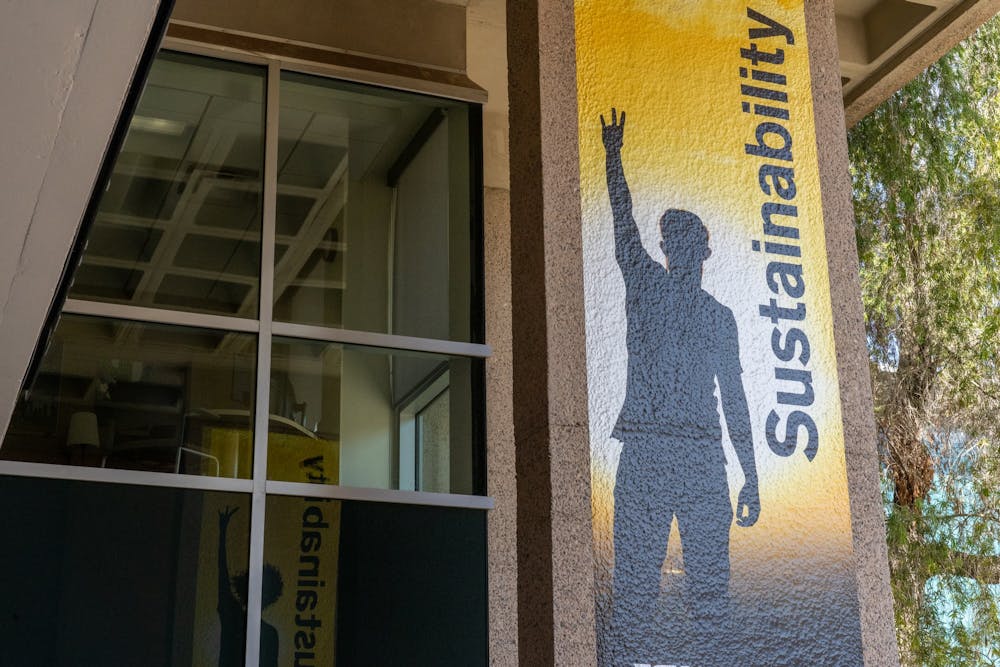The ASU Council of Presidents have been making steady progress on their sustainability goals implemented in the fall of 2019.
When the Council of Presidents assembled to organize their annual ASASU Goals and Priorities list for the 2019-20 school year, they made sustainability its own subsection for the first time.
Every April, student government leaders across ASU begin to brainstorm and gather feedback from students to develop their top five priorities that the council presidents then finalize and share with the University administration, said Trey Leveque, the vice president of policy for the Undergraduate Student Government Tempe.
"Sustainability was selected as one of the top five priorities because the student government leaders from across the University at each campus have realized that this as an ongoing topic that students are concerned about and believe that ASU should be doing more about," Leveque said.
They split the goal of sustainability into four categories: food, transportation, services and awareness. For each of those categories, the COP came up with specific tactics and actions that could be taken to achieve a more sustainable reality for ASU.
This year, they have already implemented many of their specific sustainability tactics on the list, according to Sinobia Aiden, the Undergraduate Student Government’s director of sustainability.
For instance, ASU graduates have already began to walk across the stage wearing gowns made of recyclable materials, which was a tactic listed under the services category.
Another tactic that COP has been actively working on is making Borderlands Produce Rescue, a program aiming to address issues related to food waste, more frequent and accessible for all University campuses. This would include allowing for produce purchases to be made using M&G dollars, which was listed as a tactic under the food category.
Another project the COP is working on is supporting an "Earth Month" to celebrate the 50th anniversary of Earth Day in collaboration with the Sustainability Advocacy and Awareness Board, which was originally listed under the Awareness category.
By establishing sustainability as a priority, the COP has been able to expedite progress on campus.
Kendon Jung, a coordinator and sustainability expert with ASU's Educational Outreach and Student Services, said that while adding the goals has been "galvanizing," more student support is needed to continue progress.
Jung said the COP's most significant obstacle and opportunity to completing some of their other listed goals is a lack of student participation and engagement. Many of the objectives require management and coordination done by students that would require a lot of work.
Aiden is trying to close the conversational gap between students and executives in order to ensure that the University is hearing their aspirations and initiatives.
“Right now, I am working on collecting feedback from various students and organizations on campus asking them what they would like to see at ASU that aligns with their own values and enhance a culture of sustainability," Aiden said. "If all students were engaged and excited about sustainable initiatives on campus, getting those bigger projects done would be much easier."
Reach the reporter at dgainor@asu.edu or follow @DGainorOfficial on Twitter.
Like The State Press on Facebook and follow @statepress on Twitter.




